
This article is more than
5 year old
Enter the most diverse electorate of the states that have gone so far - one that better reflects the national make-up of the Democratic Party.
The South Carolina contest is particularly important because it is essentially the gateway to Super Tuesday in just two days, when 14 states hold their own nominating contests.
Here's a look at the man who got a boost and the candidates who were busted in the Palmetto State, as South Carolina is known.

South Carolina had been billed as Joe Biden's last stand - where he poured time and resources into securing a positive result. Just a few weeks ago, as his poll numbers sank across the nation, it also appeared it would be his campaign's final resting place.
Instead, after a week of furious effort, South Carolina gave Biden his first primary victory of the year - his first win in any of his three presidential bids, in fact.
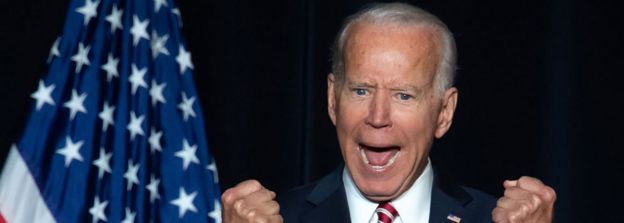
Biden may have one man in particular to thank for his success: Congressman James Clyburn, a powerful voice in the state's black community, who endorsed the vice-president on Wednesday. Exit polls indicate Clyburn's backing was an important factor for about half of the primary voters - and probably one of the reasons Biden posted such a dominating performance among the state's black voters.
If he can match that kind of showing in states to come, he's going to give Bernie Sanders a tough fight.
Biden is going to have to hope his success in South Carolina translates into a surge on Super Tuesday without much assistance from his campaign, however. He only recently began advertising in the upcoming states, and a Saturday afternoon trip to North Carolina was the first time he left South Carolina in almost a week.
He's still running on a wing and a prayer, but at least for one night and in one state, those prayers were answered.

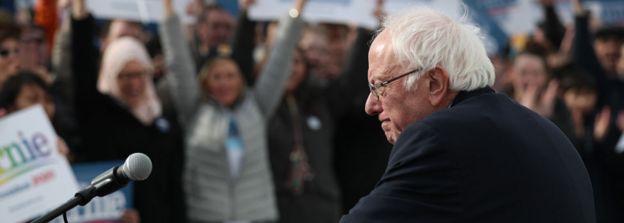
Four years ago, South Carolina dealt the Vermont senator a resounding, devastating defeat in his race against Hillary Clinton - a foreshadowing of the struggles he would have with black voters for the rest of the race.
While the margin was narrower this time around, it was still substantial - and he actually won a smaller percentage of the overall vote. The task for Sanders will be to show that the state's result this time is only a blip, not a trend. His campaign is fortunate that, while Biden is going to get a boost out of his win, many early votes have already been cast in Super Tuesday states, which could blunt the former vice-president's momentum.
Sanders made a late push in South Carolina, trying to land a knockout blow on Biden. That didn't happen - and Biden will pull close to or ahead of him on both delegates and total votes nationally once the dust settles. Sanders still is in an enviable position, but it suggests he will be in for a long slog to the convention.

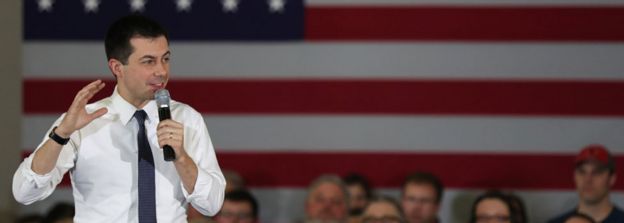
Another week, another sign that the former South Bend mayor has been unable to turn his surprising success in Iowa and New Hampshire into traction elsewhere in the US. He sank almost $3m (£2.3m) into television and radio advertisements in the state this year, second only to self-funded Tom Steyer.
He finished a distant fourth. He may find pockets of success on Super Tuesday next week, but it's getting increasingly difficult to imagine a scenario where he suddenly becomes a contender again. The same goes doubly for Amy Klobucharand Elizabeth Warren.

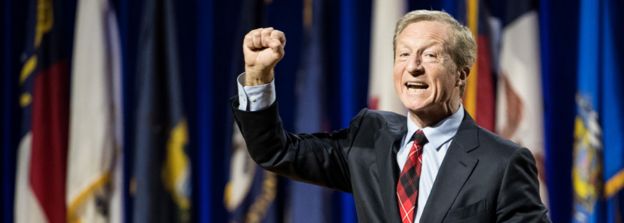
While other candidates were focusing on Iowa and New Hampshire, the California hedge-fund billionaire bet heavily on Nevada and South Carolina. He saw polling bounces in both states (and resulting debate appearances), but it didn't translate into, you know, actual votes.
With the writing on the wall for his campaign, he announced his withdrawal from the race on Saturday night.
In the end, Steyer's $267 million in total campaign spending from his personal fortune bought him less than 100,000 total votes, some general goodwill and an evening of on-stage dancing to Back That Thang Up with rapper Juvenile.
No matter what happens now that his candidacy is over, they can't take that away from him.

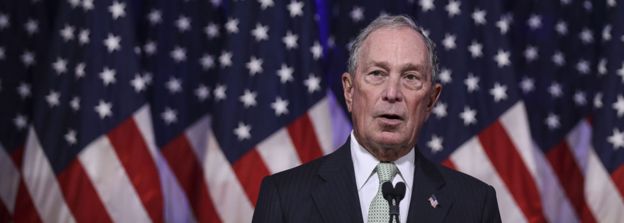
The former New York City mayor's entire presidential campaign was premised on Biden cratering. Bloomberg only entered the race in November when it looked like Biden was faltering. Now the former vice-president is back on his feet and will, at the very least, eat up votes that could have gone to Bloomberg if he were the only viable non-Sanders candidate.
Bloomberg is reportedly a numbers guy. If he is really concerned about a Sanders nomination, he'll have to think long and hard about what the data suggests will be the impact of his campaign from here on out. If he wanted to stop the Vermont senator, perhaps his best move would be to use his already reserved three-minute paid network television appearance on Sunday night to drop out of the race and endorse Biden before Super Tuesday.
I wouldn't hold my breath.